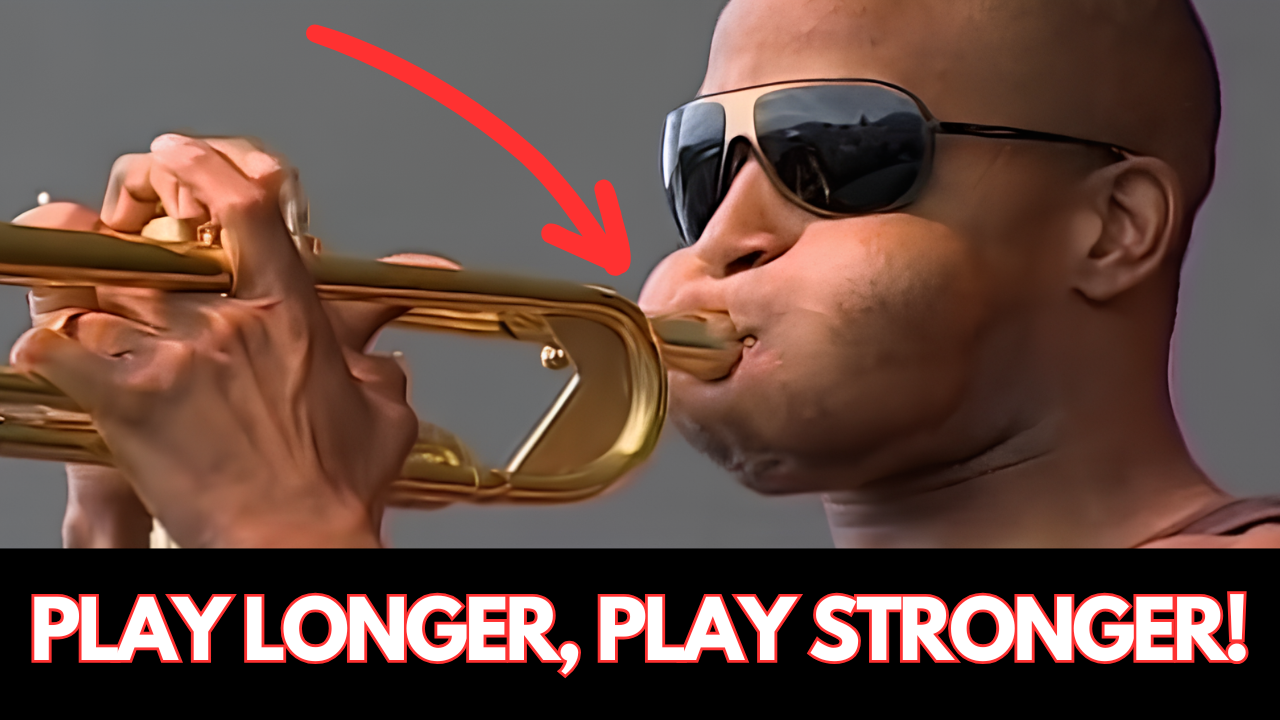For many musicians, playing the trumpet for longer periods without getting tired becomes a real challenge. In most cases, musicians struggle with breath control — in other words, they feel like they are running out of breath when playing for an extended period. If you face the same problem, our following tips can help you improve your endurance on the trumpet and play without fatigue.
Why Endurance on the Trumpet is Important
Endurance is the musician’s ability to play for extended periods without the lips, embouchure, and breath support giving out. It’s also the ability to maintain a strong, clear tone and accurate notes after long rehearsals or performances. Being able to play for longer without overexertion is crucial for trumpeters of all skill levels, whether they want to play comfortably with professional ensembles on big stages or just want to boost their endurance for personal enjoyment.

Strong endurance on the trumpet is important for several reasons:
- It reduces the risk of mistakes, weak sound, and loss of control.
- It helps musicians play for hours in concerts, rehearsals, and recording sessions.
- It boosts the quality of tone and precision, helping musicians to maintain a full, resonant sound and accurate pitch throughout a concert.
- It reduces the risk of lip strain and embouchure fatigue, as overexertion can cause serious damage if a musician puts too much effort while producing sound.
- It helps sustain long phrases with enough breath support.
Tips to Improve Your Endurance on the Trumpet
1. Work on Your Embouchure
Many players get tired very quickly because they don’t have enough strength in their lips and facial muscles. This is the main problem of why it may be so hard to play the trumpet. That’s why your first goal is to refine the way your lips and facial muscles work when you produce the sound. To improve your embouchure, you can practice several helpful exercises:
- Playing long tones. Train yourself to hold notes for as long as possible with steady airflow.
- Lip slurs. This exercise helps you engage the embouchure muscles by transitioning smoothly between notes without using the tongue.
- Playing at different dynamics. This will help you develop control and prevent unnecessary tension.
- The pencil exercise. Hold a pencil between lips without using your teeth to strengthen the embouchure muscles without the trumpet.
- Buzzing on the mouthpiece. This will help you reinforce proper airflow and muscle engagement. Alternatively, you can use buzzing tools such as buzzmasters allowing trumpeters to train their muscles by using the mouthpiece alone and creating resistance similar to that of the instrument. Or you can opt for Trumpet Embouchure Trainers (T.E.T.), designed for buzzing exercises. They help you play with a consistent tone, refine your airflow, allowing lips to vibrate naturally.
- Play without excessive mouthpiece pressure on your lips. To control this process you can use optimizers like those available on our website. They function on the base of the magnet system that automatically activates and allows an air column to escape, interrupting the buzz, each time the musician applies force.
By regularly doing these exercises, you will soon notice that it takes less strength for you to sustain notes or play high notes.
2. Use the Right Mouthpiece and Booster
If you want to boost your endurance, the right mouthpiece isn’t something to ignore. A well-fitted mouthpiece helps you get proper airflow and embouchure efficiency, reducing strain on the lips. For trumpeters struggling with endurance, it’s better to choose mouthpieces with shallower cups or larger throats as they require less effort to produce a strong sound.
Helpful attachments like mouthpiece boosters can also improve your endurance by providing more comfort and support. By adding mass to the mouthpiece, boosters stabilize vibrations, which leads to better resonance and a more controlled sound. This stability created by boosters minimizes lip fatigue and helps musicians sustain notes for longer periods.
3. Improve Your Breathing
To hold your breath for longer when playing the trumpet, you should work on how you actually inhale and exhale the air. Try to avoid shallow chest breathing, however train yourself to use a diaphragm. This type of breathing helps you take in more air and thus hold notes longer without running out of breath earlier than necessary. Start training your diaphragmatic breathing with a simple exercise. Put a hand on your abdomen and place the other on your chest. Inhale and check whether your abdomen expands while your chest remains in the same position. Exhale slowly, maintaining control over the airflow. This exercise will help you build the habit of deep breathing and the necessary lung capacity for better endurance.
4. Give Yourself Time to Rest
When you play the trumpet you use your strength, so extended sessions can feel really physically exhausting. That’s why you can’t push beyond your limits all the time as it may lead to burnout. For each 45-minute session, take a 15-minute break. Stop playing before you actually feel tired and approach the next session with a positive mindset rather than the thought of how exhausted you feel.
5. Increase Your Playing Session Time Step by Step
No one achieves success overnight. Everything comes with practice and gradual progression. To expand your possibilities to play the trumpet longer, you should increase the duration of your practice session but do it gradually! Start with a short playing session and add extra time as soon as you feel your endurance gets better.
Conclusion
Endurance is a key demand for trumpeters, as playing the trumpet requires a lot of air support, embouchure strength, and muscle control. Endurance directly affects consistency, control, and high-quality sound. You can always improve your endurance by training your lips and facial muscles, using the right mouthpiece with a well-fitted booster, using diaphragmatic breathing, giving yourself time to rest, and increasing playing sessions gradually.
In addition to tools and devices mentioned, you can find more useful accessories for trumpets and other brass instruments on our website. Would you like to learn more about proper breathing? Grab practical tips from our article on Breath Control for Brass Musicians: Tips, Exercises, and Devices.





 https://kgumusic.com/pages/about-us
https://kgumusic.com/pages/about-us
1 comment
Thank you. John.